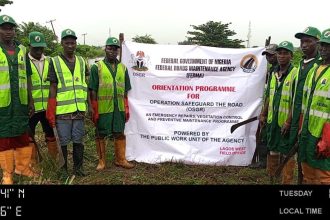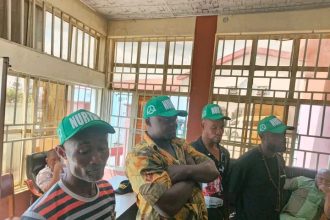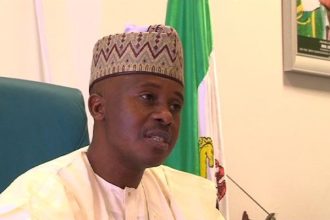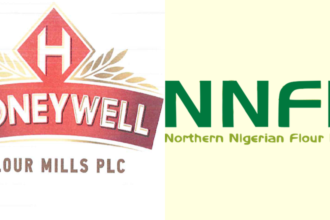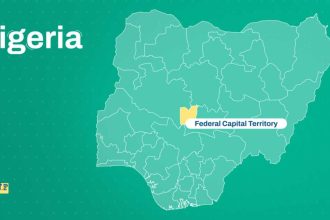By Felix Khanoba
The Federal Government has unveiled a new fraud prevention framework, ISO 37003:2025 – Fraud Control Management System – aimed at curbing fraudulent practices in both the public and private sectors.
Minister of Industry, Trade and Investment, Dr. Jumoke Oduwole, unveiled the new international standard at an event organised by the Standards Organisation of Nigeria (SON) in collaboration with the British Standards Institution (BSI) on Tuesday in Abuja.
She said the standard designed to strengthen transparency and good governance reflects government’s determination to reinforce the economy on the pillars of integrity and accountability towards ensuring enabling environment for businesses to thrive.
“We are working tirelessly to attract foreign direct investment, empower local industries, and facilitate seamless trade. However, we recognize that fraud in all its forms is a corrosive agent that eats away at the very fabric of our economic success.
“It increases the cost of doing business, it erodes investors’ confidence, stifles innovation, and ultimately undermines public trust. And we must confront it decisively to build a truly resilient and competitive economy,” Oduwole, represented by the Deputy Director, Reform at the ministry, Dr Jaychyma Agu, said.
She stressed that the ISO 37003:2025 framework would help both government and private institutions adopt proactive measures in tackling fraud.
“This is not just another regulation, it is a comprehensive framework. A globally recognized benchmark that provides organisations, both in the public and private sectors, with the tools and guidance to establish, implement, and continually improve the robust fraud control management system,” she said.
The minister urged ministries, departments, and agencies to lead by example by adopting the standard to enhance transparency and improve service delivery.
On his part, the Director-General/Chief Executive of SON, Dr. Ifeanyi Chukwunonso Okeke, said the launch of the new standard is a powerful instrument to strengthen transparency, accountability, and good governance in Nigeria.
“We take immense pride in the fact that Nigerians, through the Standards Organization of Nigeria SON, play an active role for construction of the application of this standard, serving as a core component and eventually as a component of ISO Technical Permittee 309 Working Group 8. This singular achievement places our nation at the forefront of global efforts in developing frameworks that address fraud in all its manifestations,” Okeke represented by Ethan Talatu, Director of Coorperate Affairs, said.
He emphasized that the standard would embed integrity in organizational operations, improve Nigeria’s global rankings, and boost investor confidence.
“Fraud remains a policy obstacle for our national development. It erodes trust, including the cost of doing business, discourages foreign investment and deprives our citizens of the resources needed for infrastructure and social services. The cost is both economic and reputational.
“For too long, resources have been fragmented and reactive. With ISO 37003-2025, we now embrace a proactive and structured framework for fraud prevention, detection and response. This standard provides a globally recognized framework for preventing fraudulent activities before they occur, detecting fraud efficiently when it arises, and responding decisively to ensure accountability and minimize damage.
“More importantly, it fosters a culture of integrity by embedding fraud prevention into the very DNA of organization operations. For the public sector, adoption of this standard will enhance transparency and accountability, reduce leakage and rebuild public confidence. For the private sector, it will serve as a mark of integrity, signalling to partners and investors that Nigerian companies operate to the highest standards of governance.
“For the economy as a whole, its widespread adoption will improve Nigerian global rankings, and transform direct investment and support the goals of the new gold agenda. The Standards Organization of Nigeria is truly committed to ensuring that this standard does not remain on paper, but is implemented effectively,” he said.
Earlier, the Covenor, ISO/TC309/WG8 and Chairman SON NTC Governance of Organizations, Professor Oserheimen Osunbor, said the standard was developed in response to rising global fraud losses.
“Research findings from the literature published by reputable sources show that fraud costs the global economy about $4 trillion per year. In fact, the chief executive of the Chartered Institute of Forensic Research has put it at $4.7 trillion,” he said.
The former Governor of Edo State, added that Nigeria would benefit immensely from the framework, which could reduce the investigative burden on anti-graft agencies and ease pressure on the judiciary.
“This will bring down the number of cases going up to trial, thereby translating to a reduced workload on our courts. Evidence of compliance with the standards could be a mitigating factor in legal proceedings against organizations and their top executives. For us in Nigeria, ISO 37003 is unique in a special way,” he said.
Also speaking, Sorrel Evans of the UK Foreign, Commonwealth and Development Office (FCDO) highlighted the global scale of fraud, saying the new standard would tackle the problem.
“There are an estimated 7-6 million victims of fraud in the last 12 months alone and that figure is only half the world. That is a figure by the way that exceeds the GDP of many nations, so the economic loss is huge.
“To bring it home to the UK, 10 million people have been affected in this year, costing the UK economy £11 billion. The same is true of Nigeria and around the world. The latest figure from NIBS, the Nigerian Interbank Settlements Team, indicates that Nigeria lost £52.26 billion in fraud in 2024.
“Perhaps even more worryingly, these are growing trends. That £52.26 billion Naira figure represents a 295% increase on the previous year. In parts of Africa, according to latest interval studies, scam notifications rose by 3,000% last year.
“And in the same year, 2024, deepfake-enabled fraud surged by 167%, threatening corporate identities and compromising businesses. Sub-Saharan Africa faces the highest business fraud threat globally, according to reports by the Global Scam Alliance, with 34% of all businesses affected, which is compared to 25% worldwide. So it is right and important that Nigeria is taking a key and crucial leadership role in this, not only for the nation here, but the continent and for the international community.
“So I wanted to again express our thanks for the standards implementation of Nigeria’s leadership in this regard. These numbers really do paint a grim picture, but they also underscore the importance of what it is that we’re all here to do today in the launch of this standard. This initiative matters on both a macroeconomic scale, but also on a personal one.”
David Adamson of the British Standards Institution commended SON and other stakeholders for their role in producing the world’s first international fraud control standard.
“We don’t want the standard to sit on the shelve, we must make sure it is implemented in organisations,” he said.
The launch, which attracted experts, bankers, anti-graft officials, and government representatives both physically and virtually, also featured paper presentations and panel discussions.
The event climaxed with the official presentation and unveiling of the new ISO 37003:2025 standard.











